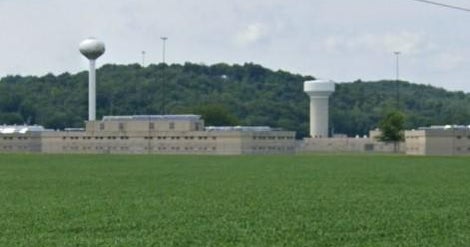The tour of Guatemala and Honduras by the United States Ambassador to the United Nations Food and Agriculture Agencies based in Rome, Cindy McCain, came to an end on Friday, July 29.
During his last stop in Honduras, McCain visited projects that are developed with populations vulnerable to climate change, food insecurity and malnutrition.
One of the programs is based on supporting small farmers who have improved their cultivation and production techniques to offer better products, which, in turn, has been reflected in greater opportunities for the El Pacayal community, in Chinacla, La Paz, Honduras. Vegetables, avocado and coffee are grown there, in addition to the production of honey.
Climate change resilience programs were visited in the Cerro Verde community. One of them is the creation of a Caja Rural, a fund that offers monetary loans for residents to start a crop or enterprise, at a low level of interest and with payment facilities. Another consists of the construction of a water tank that helps them store the liquid in large quantities and the installation of a drip irrigation system, which has allowed them to cultivate throughout the year, regardless of the variability of the rain.
After closely seeing these and other programs, the ambassador assured that the aid from the United States will continue and referred that the US government has donated 20 million dollars to the Food and Agriculture Organization of the United Nations, FAO, to bring carried out a soil mapping project in Guatemala and Honduras, to establish current conditions and needs.
In addition, he highlighted the importance of empowering women in the communities. “All these projects empower women and this is very important because they are the ones who look after the well-being of the family,” McCain stressed.
And he reiterated that these projects aim to reduce the need to migrate: “People really don’t want to leave, they leave out of necessity, but these projects make it possible for people to empower themselves in their communities, be with their children, feed their families. and have a happy future.
René Castro, country director of the International Fund for Agricultural Development -IFAD- in Honduras, stressed that the projects are intended to have a long-term impact, that is, an accompaniment that provides knowledge and self-management skills to the inhabitants of the areas. vulnerable. In addition, he confirmed greater funds from the United States government: “The United States embassy has announced that an additional contribution of 10 million dollars will be made to IFAD for response to the crisis, given that we have been able to contribute in several countries after of COVID-9 and the war in Ukraine,” Castro said.
Meanwhile, the ambassador said that Guatemala and Honduras have become an example for the implementation of programs in other nations. “When other countries ask for help from the United States, I refer to projects like this so they can see how successful they can be and how necessary they are for the country,” she said.
And he reiterated: “The message that I am going to convey is that these investments work, they are necessary and we need more of them,” assured McCain at the end of the interview given to the media in Honduras.
Connect with the Voice of America! Subscribe to our channelYouTube and turn on notifications, or follow us on social media: Facebook, Twitter e Instagram.






